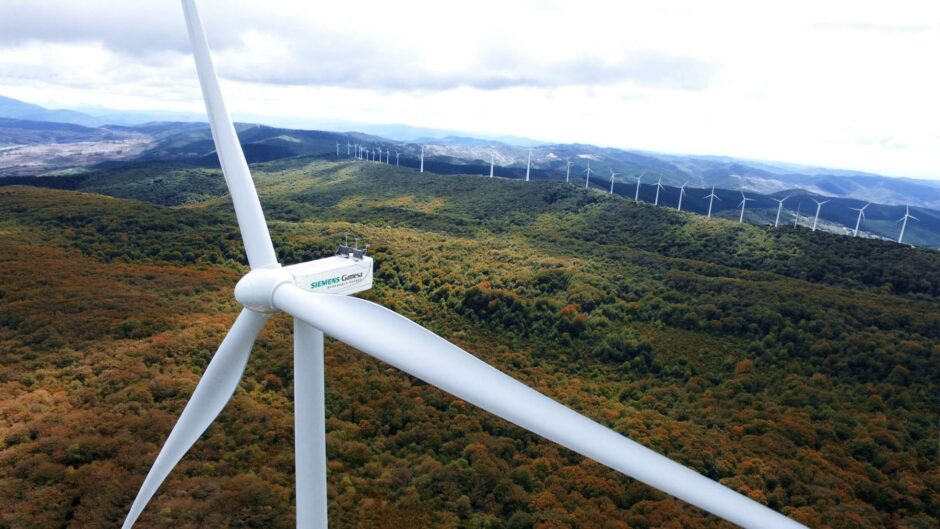
It is feared millions of pounds worth of renewables investments are at risk as a result of the controversial electricity generator levy (EGL).
The Association for Renewable Energy and Clean Technology (REA) has warned that the windfall tax on green energy producers will impact the UK’s energy security, hit bill payers, and act as a drag on the net zero push.
While the trade body accepts that renewables must “play their part”, it says the proposed levy must be “appropriately designed to avoid serious market disruption”.
It claims that the windfall tax, announced as part of the UK Government’s autumn budget, is already having severe effects on the sector.
And it says there is evidence that hundreds of millions of pounds of low carbon investment has stalled since the policy was unveiled in November.
As well as upping the tax on oil and gas producer, Chancellor Jeremy Hunt slapped electricity generators with a temporary levy of 45% on “extraordinary profits”.
It brings the headline rate on earnings for green energy companies to 70%, when combined with corporation tax.
The EGL will come into force on January 1.
Newer projects backed by a Contracts for Difference (CfD) aren’t impacted, leading to claims the government is penalising renewables pioneers.
Unlike the North Sea windfall tax, the EGL doesn’t have an investment allowance mechanism built in, something the REA says must be addressed.
It is pushing Westminster to provide spending relief to the renewables and clean technology sector, arguing that failing to do so will undermine much needed investment.
Frank Gordon, director of policy at REA, said: “While the REA and its members recognise the immense economic challenges facing this country, we would question the wisdom of subjecting cheaper, greener renewable power sector to a more punishing tax system than its oil and gas counterparts.
“We strongly urge the Government to fix this disparity by providing a tax relief for low carbon investments as part of the Electricity Generator Levy design. As is already in place for the oil and gas sector in the Energy Profit Levy. This is crucial for getting investments in renewables moving again following the pause that resulted from the last few months of political and policy uncertainty.
“In the short term, renewable generators can help address this energy crisis by helping keep the lights on this winter, and the REA welcomes the moves on exceptional costs and Indexation, which will mitigate some negative impacts of the levy. In the long-term, renewable generators will provide the UK with homegrown, low-carbon energy, not only providing us with energy sovereignty, but also providing us with much needed economic growth. The market value of the renewables industry is set to more than double to £46bn by 2035.
“The REA is now urging the Prime Minister and Chancellor of the Exchequer for further clarity on the levy, and to ensure that any mechanism used to raise funds from the renewable energy sector is fair, equitable and supports our sector to grow.”
According to the REA, the impact of the proposed levy is already being felt across the sector, with surveyed members indicating that investment pipelines have been paused.
That puts hundreds of millions of pounds of potential green investment in a raft of projects, raning from solar to hydrogen, at risk.
Mark Silvester, chief executive of Enovert, said: “Enovert is a long-established investor and operator of renewable energy assets in the UK. Enovert has a pipeline of renewable energy assets under development – typically in partnership with local authorities, landowners or energy-intensive users that are keen to reduce their carbon footprint. The EGL risks undermining confidence and restricting future investment in new renewable energy assets.”
In a stement given in Parliament yesterday, the Exchequer Secretary to the Treasury, James Cartlidge, said the measure is “not designed to penalise electricity generators”.
He added: “It is instead a response to the fact that, as a result of exceptional and unforeseen geopolitical events, some electricity generators are realising extraordinary returns from higher electricity prices—higher prices that have imposed substantial costs on households and business energy users and necessitated the Government to take unprecedented action with £55 billion to directly help households and businesses with their energy bills. The Government have previously considered a price cap in response to the current crisis. We have instead adopted this levy as a more proportionate approach. It leaves generators—whose continued investment in the industry is vital to our long-term energy security—with a share of the upside they receive at times of high wholesale prices.”
The Department for Business, Energy and Industrial Strategy have both been contacted for comment.
Recommended for you

